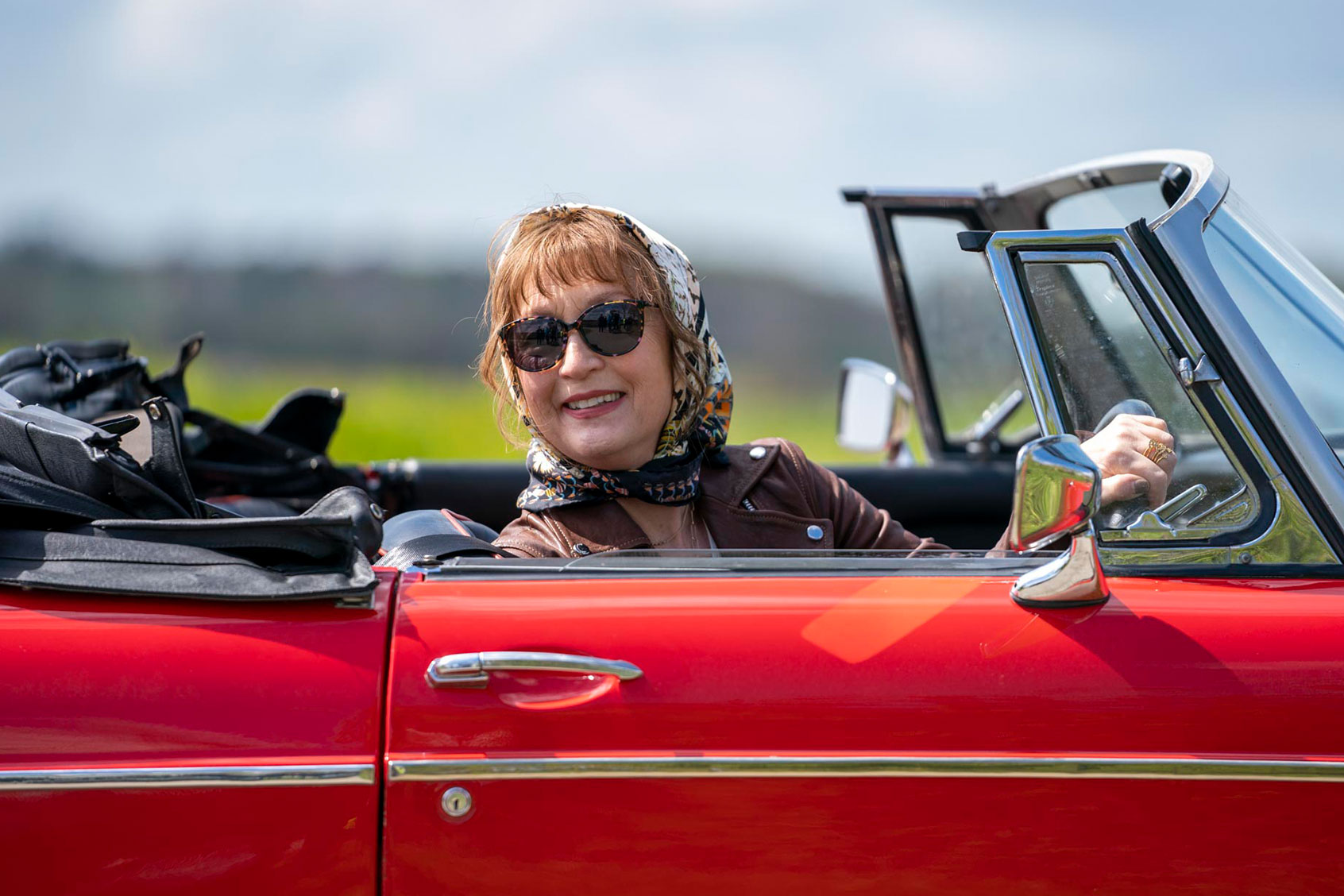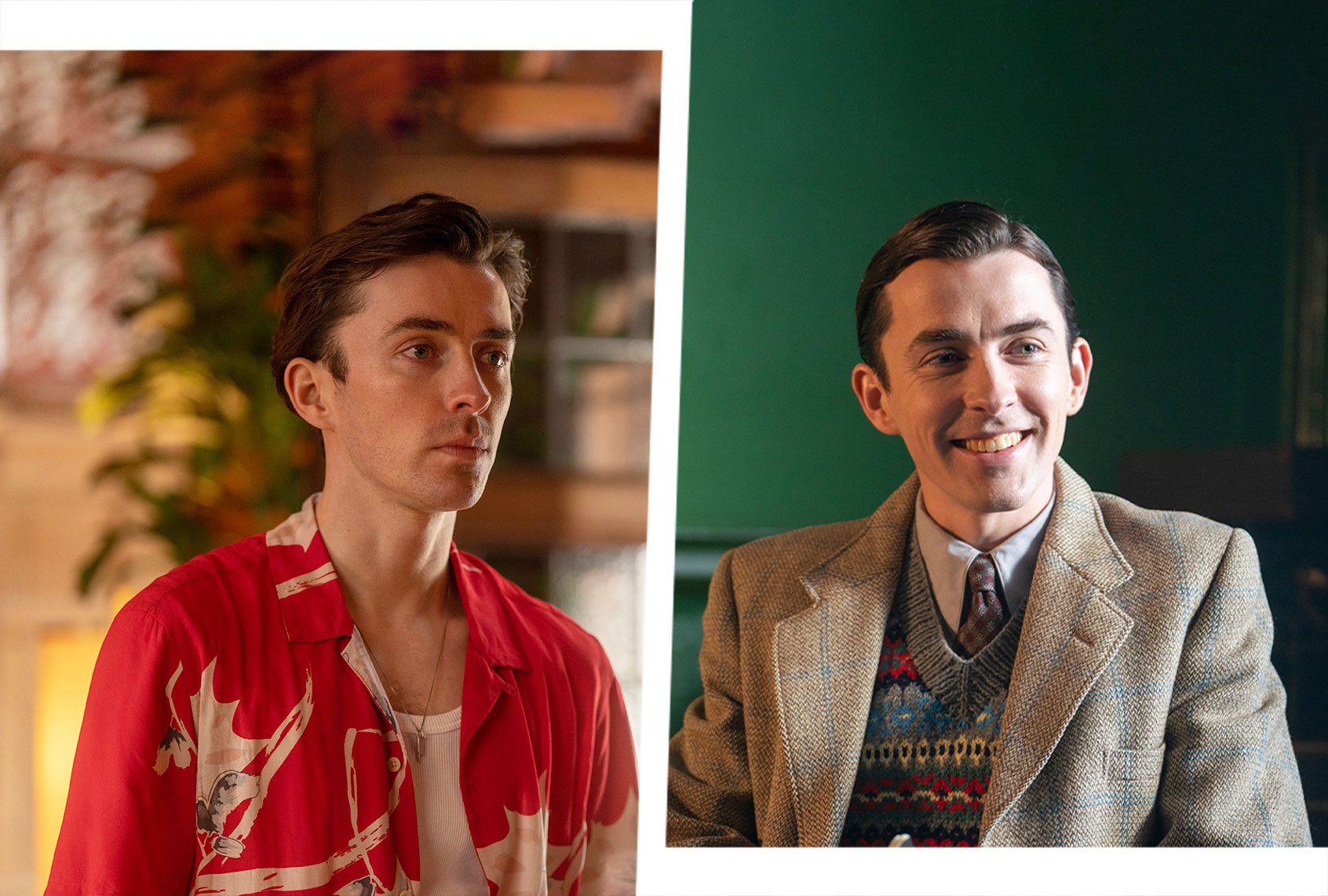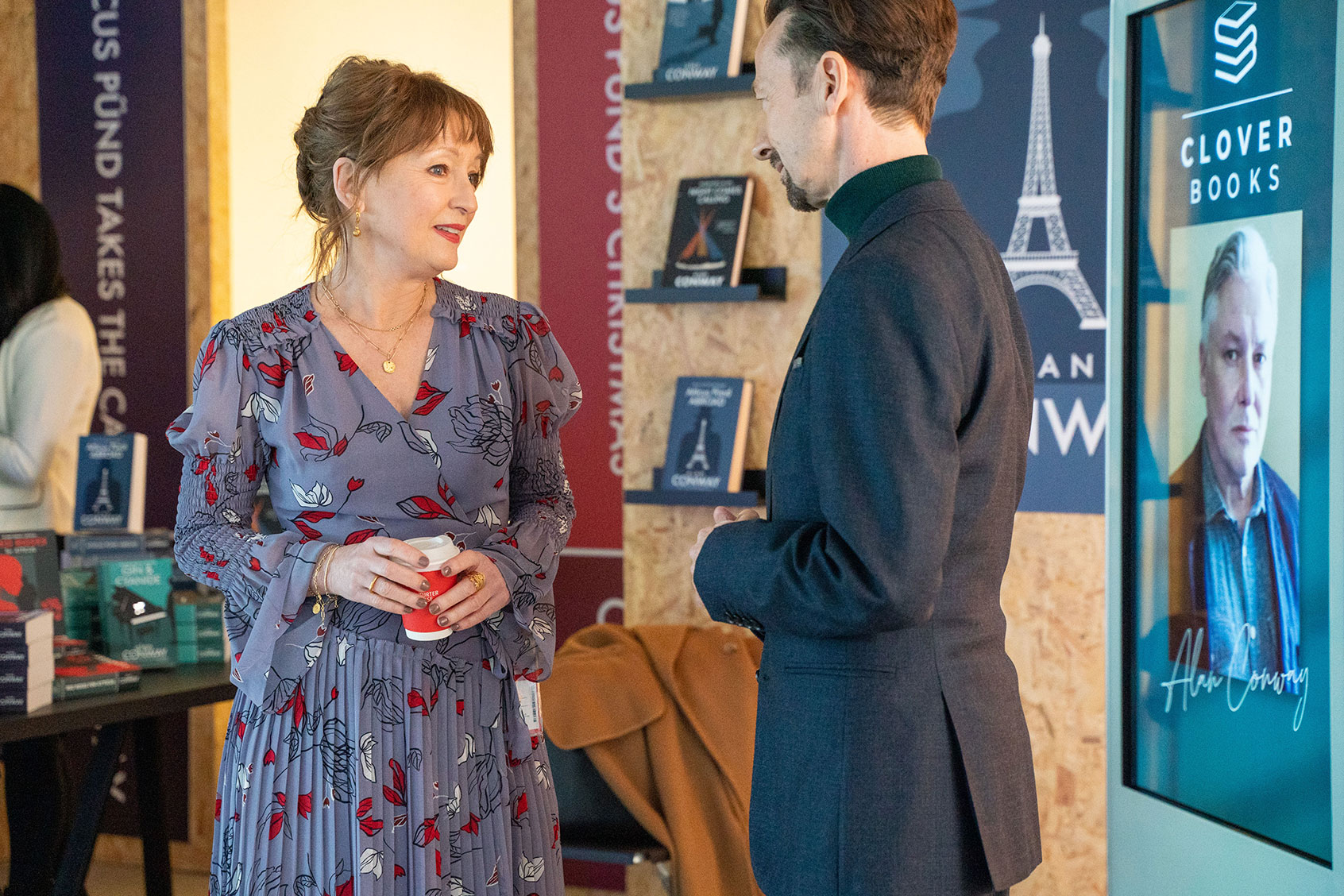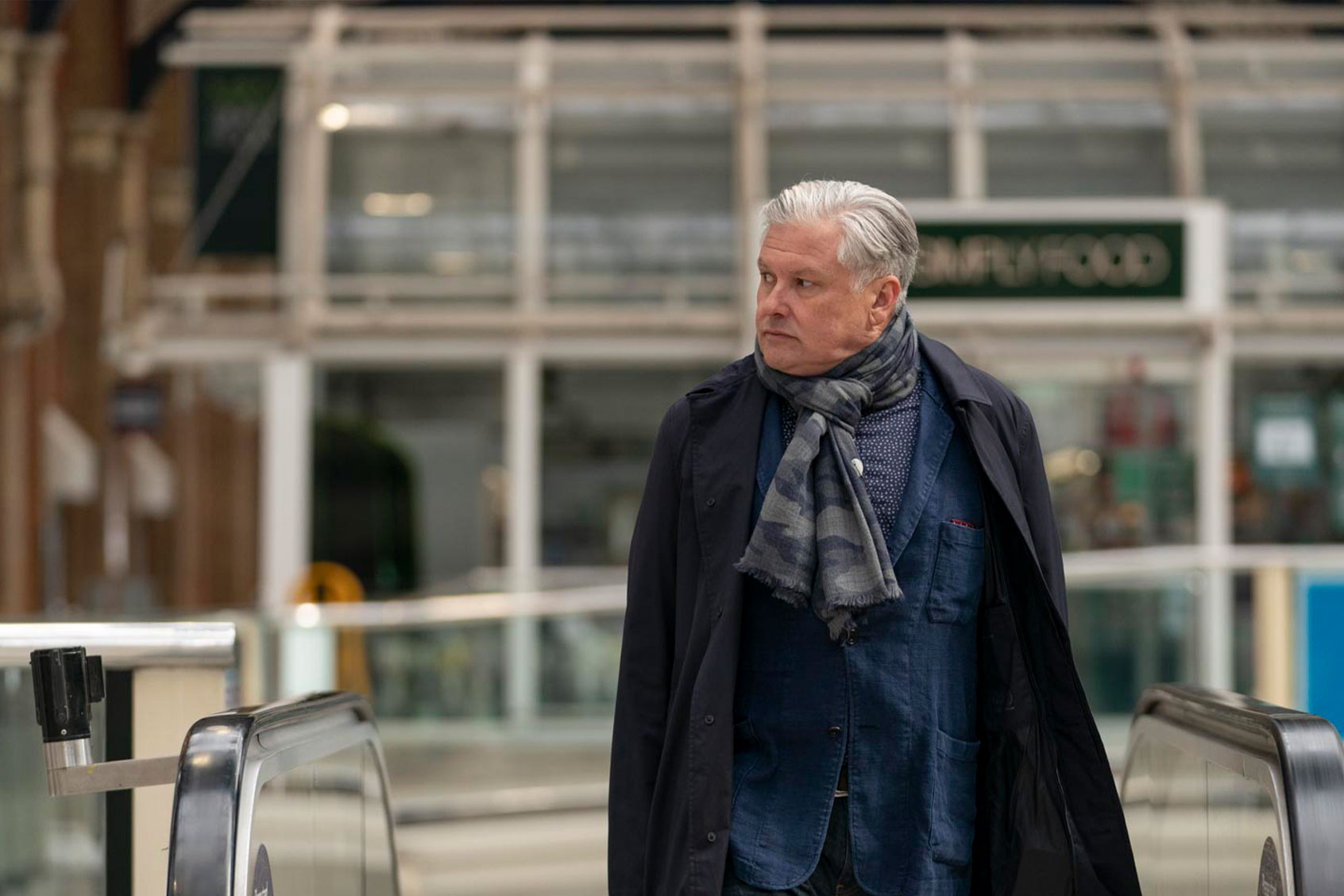Authors writing about authors is nothing new, but Anthony Horowitz did one better.
For “Magpie Murders,” the bestselling murder mystery novelist wrote about a bestselling murder mystery novelist who dies under peculiar circumstances . . . and the clues to his death are in his final unfinished book – you guessed it – a murder mystery.
Unsurprisingly, that killer story-within-a-story – boasting two mysteries, two sets of suspects and two solutions – required at least double the time to craft.
While Horowitz has written plenty of crime and detective dramas for television, this would be the first time he’s adapted one of his novels for the screen.
“Most of my mysteries are about 300 pages, and ‘Magpie Murders’ the book is about 630 or 640 as I recall,” Horowitz said in a Zoom interview with Salon. “That’s a lot more writing to have to do, and also yes, a lot more planning and everything. Now that I think about it, an ordinary murder mystery takes me about seven months to write. And my memory of ‘Magpie Murders’ was about 15.”
In “Magpie Murders” fictional author Alan Conway’s final novel is a 1950s-set murder mystery in which two deaths in the village of Saxby-on-Avon appear to be linked. As detective Atticus Pünd investigates, multiple suspects emerge. But just as he’s about to reveal the killer’s identity, the novel abruptly ends; its final chapter is missing.
To make matters worse, Alan Conway suddenly turns up dead. As book editor Susan Ryeland goes through her client’s home in hopes of finding the missing chapter, she is convinced that Conway’s death is in fact a murder. Even more confusing? Conway based many of his novel’s characters on people in his life, people who have reasons for wanting him dead.
Horowitz not only had the challenge of crafting such an intricate story the first time around but he also had the dubious pleasure of adapting his own novel for a six-part TV series. While Horowitz has written plenty of crime and detective dramas for television – “Foyle’s War” and “Midsomer Murders” are his most well-known – this would be the first time he’s adapted one of his novels for the screen.
And it was a task that required ripping apart his novel and reconfiguring it entirely because Lesley Manville (“Mrs. Harris Goes to Paris,” “The Crown,” “Phantom Thread”) was cast as book editor Susan Ryeland.
“Suddenly, we had a major, major talent playing Susan Ryeland,” said Horowitz. “And if I had done it the same way as the book, she wouldn’t have turned up pretty much until Episode 4, which is crazy. You cannot do that with a star of that caliber. So once I made the decision, helped very much by my wife, producer Jill Green, who said this is the only way to do it.”
 Lesley Manville as Susan Ryeland in “Magpie Murders” (PBS/Eleventh Hour Films/ Nick Wall)Manville had been a champion of the Susan Ryeland mysteries from the start and had in fact been the audio narrator of the second book in the series, “Moonflower Murders,” before being cast on the show.
Lesley Manville as Susan Ryeland in “Magpie Murders” (PBS/Eleventh Hour Films/ Nick Wall)Manville had been a champion of the Susan Ryeland mysteries from the start and had in fact been the audio narrator of the second book in the series, “Moonflower Murders,” before being cast on the show.
“One of one of the things I like about Susan Ryeland is that she is a woman of a certain age, but she had doesn’t bow to the sort of restrictions that come with that,” said Horowitz. “She’s not the older woman. She is a woman with a very, very full life. She is somebody who drives a really sporty car, who drinks gin in the shower, who smokes cigarettes, who is quite in control of herself and what she wants, although even she’s at a crossroads in her career and love.”
Most of these details are faithful to the novel, but Horowitz deepens the Susan Ryeland character for the TV series, giving her a backstory. Putting her character front and center also helped unlock the show’s major storytelling strategy: mirroring the parallel mysteries, from the 1950s village setting to the contemporary publishing story and back again.
“The two worlds had to fold over each other. You couldn’t just do the ’50s followed by the modern day, you had to somehow do them at the same time,” said Horowitz. “Susan would guide us through it, she would meet Atticus Pünd (Tim McMullan). They would actually form a relationship together, and the two worlds would fold into each other, they would embrace each other. And that’s exactly what we what we ended up doing.”
While Susan is trying to determine what happened to Alan Conway’s last chapter, viewers get to follow the book’s own detective Atticus Pünd in his inquires. But while these two investigators can’t be any more different, the rest of the show’s characters start to blur the lines of reality. Since many of Alan Conway’s characters are based on people he knew, the show casts the same actor to play both roles.
 Matthew Beard as James Taylor in present day and as James Fraser in the 1950s in “Magpie Murders” (PBS/Eleventh Hour Films)
Matthew Beard as James Taylor in present day and as James Fraser in the 1950s in “Magpie Murders” (PBS/Eleventh Hour Films)
“Originally I wasn’t going to do [the dual casting]. I didn’t see that. Now I think about it I was being an idiot because it was a gift,” said Horowitz. “It is the whole fun of the show. I love the way a 1950s character hears his doorbell ring, goes down the stairs to answer it, but when he comes out at the bottom, he’s turned into the 21st century character. You’ve just jumped into a new time[line]. I don’t think anyone has ever done this in television before.”
Horowitz is referring the double roles played by Matthew Beard: James Fraser and James Taylor – the former the secretary to Atticus Pünd and the latter Alan Conway’s boyfriend.
“What actor can resist playing two parts in one show? So there was a lot of fun to be had,” said Horowitz.
“There’s a lot of comfort we found in murder [books]. What a murder mystery is about is truth.”
Someone who did not need to be doubled, however, is Alan Conway, the notorious author whom Susan Ryeland not only edited but had to keep in line. While he is the top author at his publishing house, he’s also a bit of a jerk. Getting Conleth Hill, known for playing spymaster Varys from “Game of Thrones,” to play Alan Conway added just enough of a rascally edge to a character viewers had to be worthy of being murdered.
“We were thrilled he took the role because what he gets so brilliantly right is that he plays it with a slight tongue-in-cheek, this mischievous quality to the performance, but he never takes it too far to make it not real,” said Horowitz. “That’s what we were looking for this. We didn’t want the ’50s material to seem like pastiche or parody, it had to be real. But at the same time, it’s not as real as the 21st century and Susan’s story. So we were looking for a sort of a slight smile in the performances. And that’s exactly what Conleth gave us.”
 Lesley Manville as Susan Ryeland and James Flynn as Klaus in “Magpie Murders” (PBS/Eleventh Hour Films)
Lesley Manville as Susan Ryeland and James Flynn as Klaus in “Magpie Murders” (PBS/Eleventh Hour Films)
It’s clear that Horowitz enjoys metafiction judging from his writing about writers and centering a murder mystery in the publishing world. But don’t read too much into the character of Alan Conway as a representative of Horowitz the author. Look to the “Hawthorne & Horowitz” series to see how Horowitz wrote himself into those mysteries.
Want a daily wrap-up of all the news and commentary Salon has to offer? Subscribe to our morning newsletter, Crash Course.
But he does like to think about the craft and purpose of writing.
“We’ve just come through two of the worst years in the planet with COVID and everything,” he said. “Many of the people I know were kept sane by books, by fiction, by murder mystery. Book sales spiked during COVID, but the biggest sellers were the murder mystery books. That sort of escapism, that sort of folding yourself into a puzzle helped to cushion you from the reality of the world around you.
“There’s a lot of comfort we found in murder,” he added. “What a murder mystery is about is truth. At the end of the day, it is one of the few forms of fiction I can think of where every ‘I’ is dotted, every ‘T’ is crossed. You come to a conclusion, the world is healed. The detective enters in a community whether it’s Saxby-on-Avon or wherever it might be, where there is trouble because there’s been a murder, there is suspicion, there is fear, there is anguish. But the detective arrives and when he leaves the murderer has been caught, everything has been explained, the community is at ease with itself. The world is a better place. That’s why these books and TV shows like mine have such an attraction. We need them, especially in a world of 24-hour news fake news, where nothing is quite explicable anymore.”
“Magpie Murders” airs Sundays at 9 p.m. on PBS’ “Masterpiece.”
Read more
about “Masterpiece”


